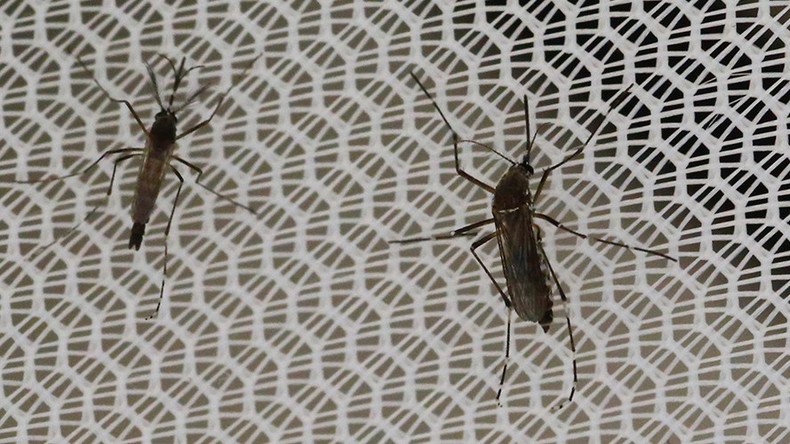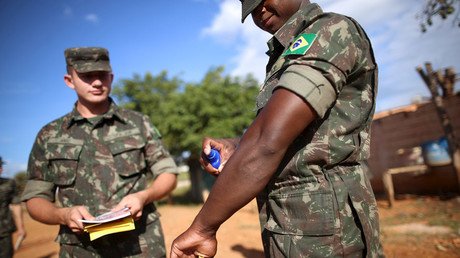Brazil using drones to fight Zika, Cuba deploys army

Brazil and Cuba are stepping up their efforts to tackle the Zika scourge. While several cities in Brazil will use drones to locate and destroy breeding grounds for the mosquito, Cuba is set to deploy a whole army to prevent Zika from reaching its territory.
The drones have a very sharp eye. In San Paulo they perform low-altitude flyovers to detect signs of the pest in gardens, on terraces and other places where it is known to breed. They then fumigate the colonies, Xinhua reports.
Brazil has almost met its target of inspecting 60 million residences across the country. This adds to other efforts, such as massive armed forced deployment, to stamp out the infection. Some 40 percent of targeted locations have already been dealt with.
The idea of using the drones was born out of necessity. Many households were difficult to get into - some did not allow inspectors in, others simply had no one inside at the time. Drones greatly improve access without having to disturb residents.
Aside from drones and manpower, the government is also looking at newer and quicker means of diagnosing the virus, Sao Paulo Health Secretary Alexandra Padilha said.
While revolutionary in Brazil, the idea of using drones to combat Zika isn’t new. A recent international show in the UAE – Drones for Good – dedicated to exploring the medical and life-saving potential of robotics and drones, showcased a very ambitious project.
Amicably called ROMEO (Remotely Operated Mosquito Emission Operation), the drone will fire off sterilized mosquitos over affected areas. Once the Zika-spreading female mosquitos mate with the sterilized male ones, the problem is solved. Female mosquitos mate only once in a lifetime, so the approach shows great promise.
About 4,000 infants in Brazil have been born with microcephaly since October, whereas in 2014 there were fewer than 150 cases.
Cuban President Raul Castro assigned as many as 9,000 army troops to prevent the epidemic from reaching the country and urged Cubans to comb neighborhoods for the Aedes genus of mosquitoes which is said to carry yellow fever, dengue, and encephalitis.
"The Revolutionary Armed Forces will assign more than 9,000 troops, among them active duty officers and reserve officers ... to the anti-vector and cleanup efforts, with the additional support of 200 officers of the National Revolutionary Police," he said.
Castro encouraged its citizens to take serious part in the fight against the disease.
"It's necessary for every single Cuban to take up this battle as a personal matter," Castro wrote in a national message.
Castro also announced that the government has approved a plan designed to prevent the Zika virus from spreading into Cuba and to combat other mosquito-borne diseases, such as dengue and chikungunya.
Cuba has not encountered a Zika case yet, however, the probability of the disease reaching its soil remains high, said the World Health Organization (WHO).
"There are no confirmed cases yet but there will be. To date there have been two suspected cases that turned out negative," an unidentified Health Ministry worker told Reuters.
The outbreak is currently affecting large parts of Latin America and the Caribbean.
Zika was highlighted as a global health emergency in early February by the WHO.














